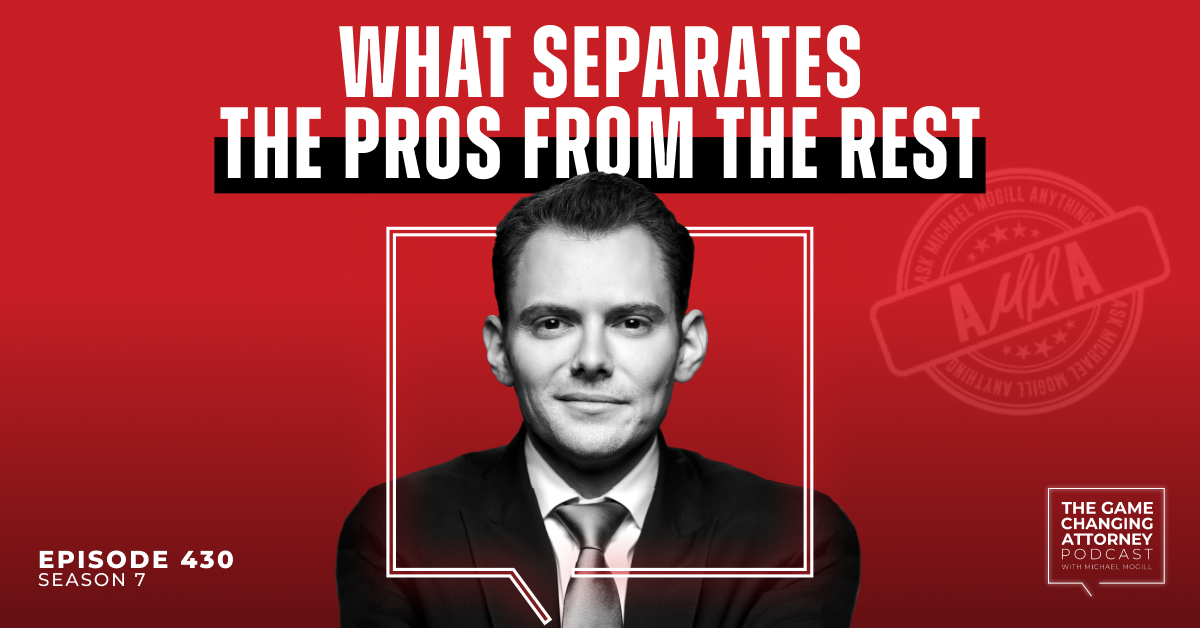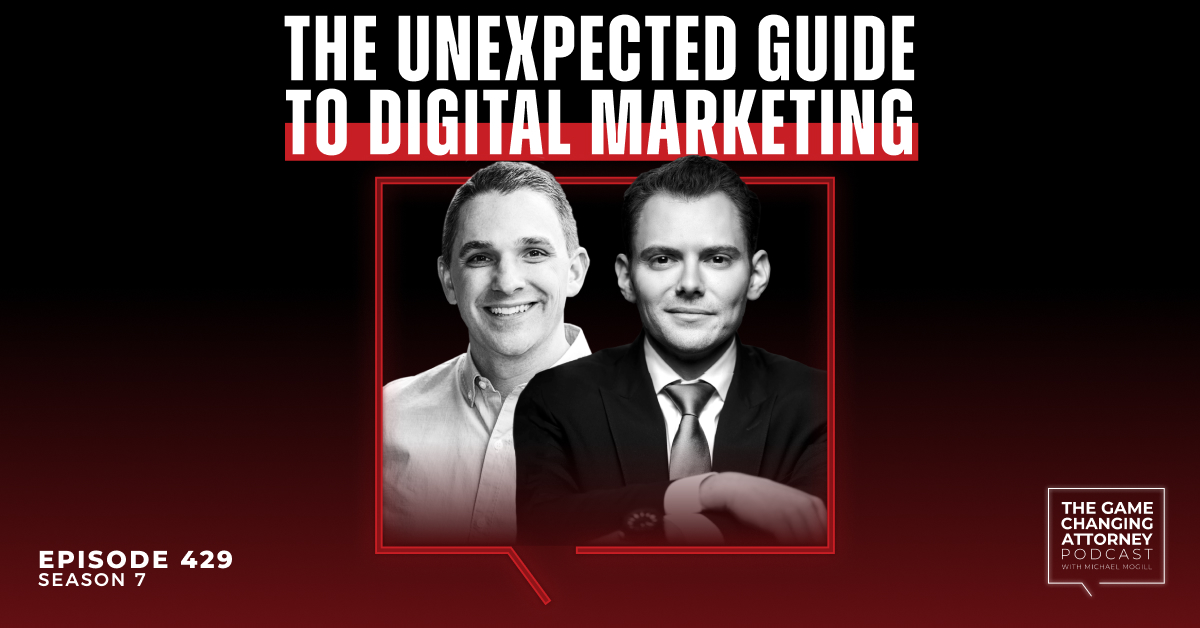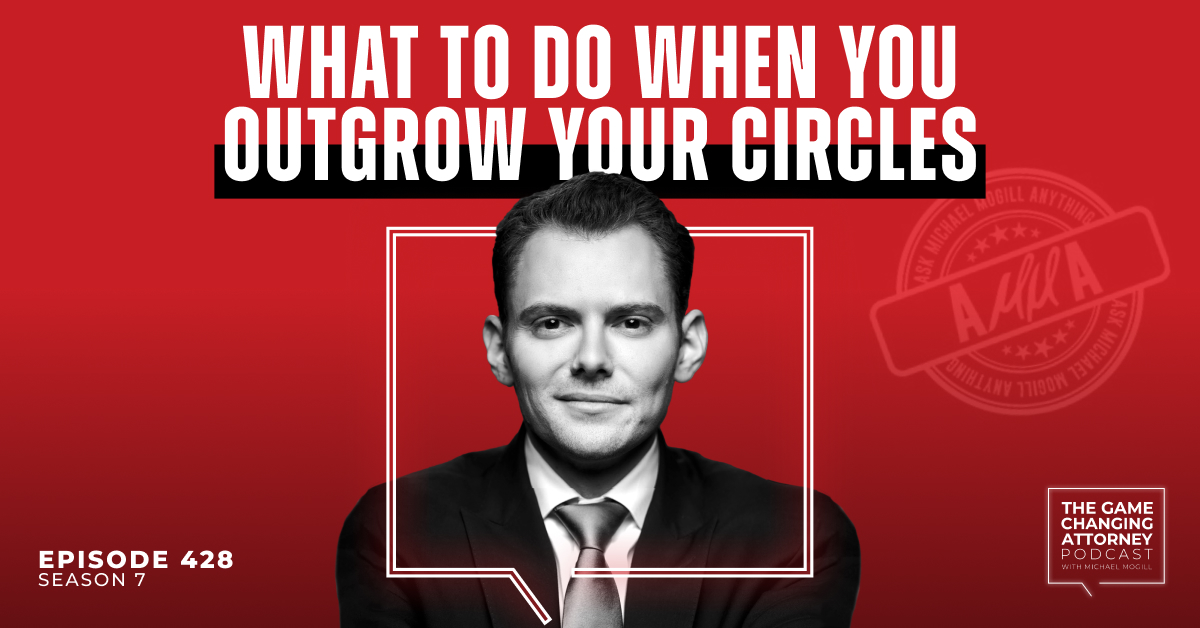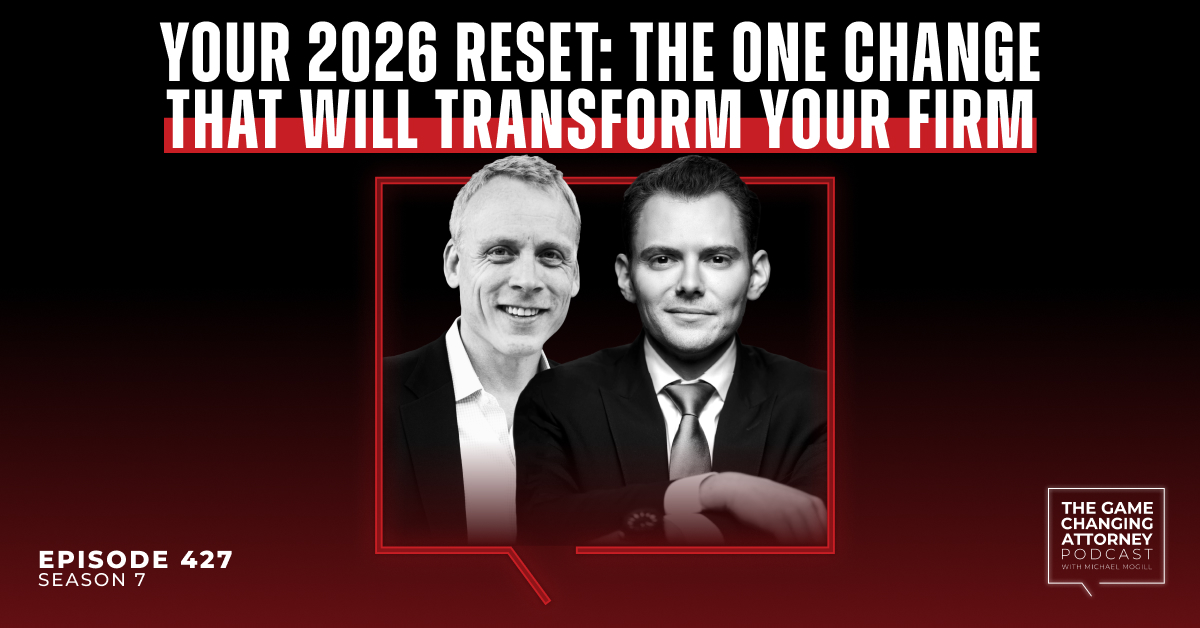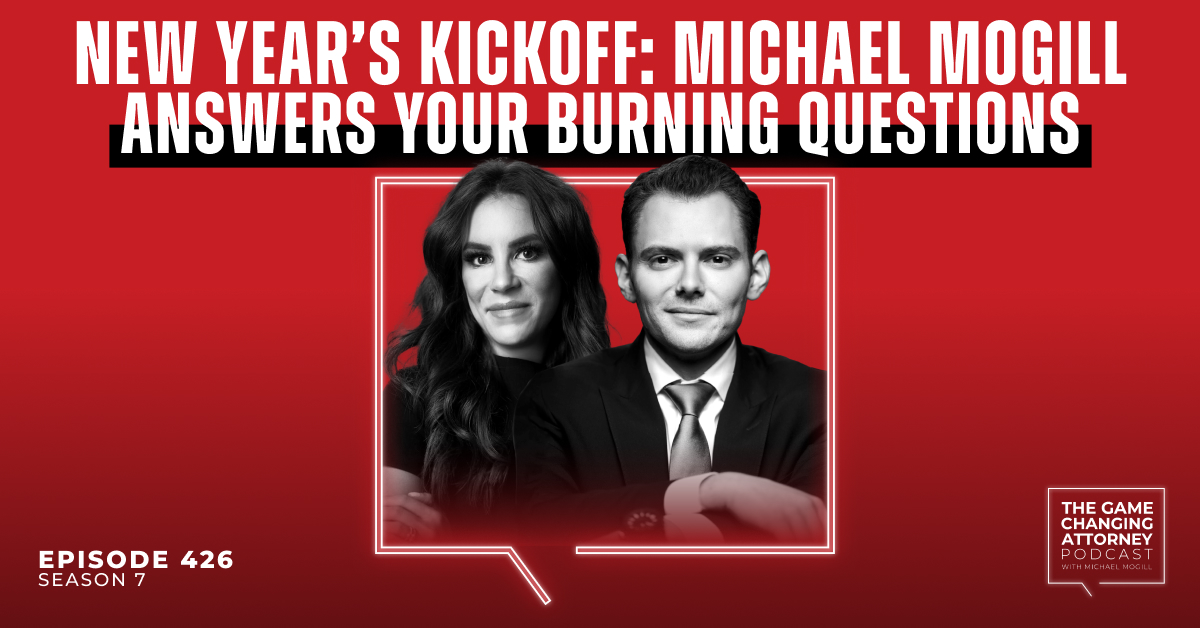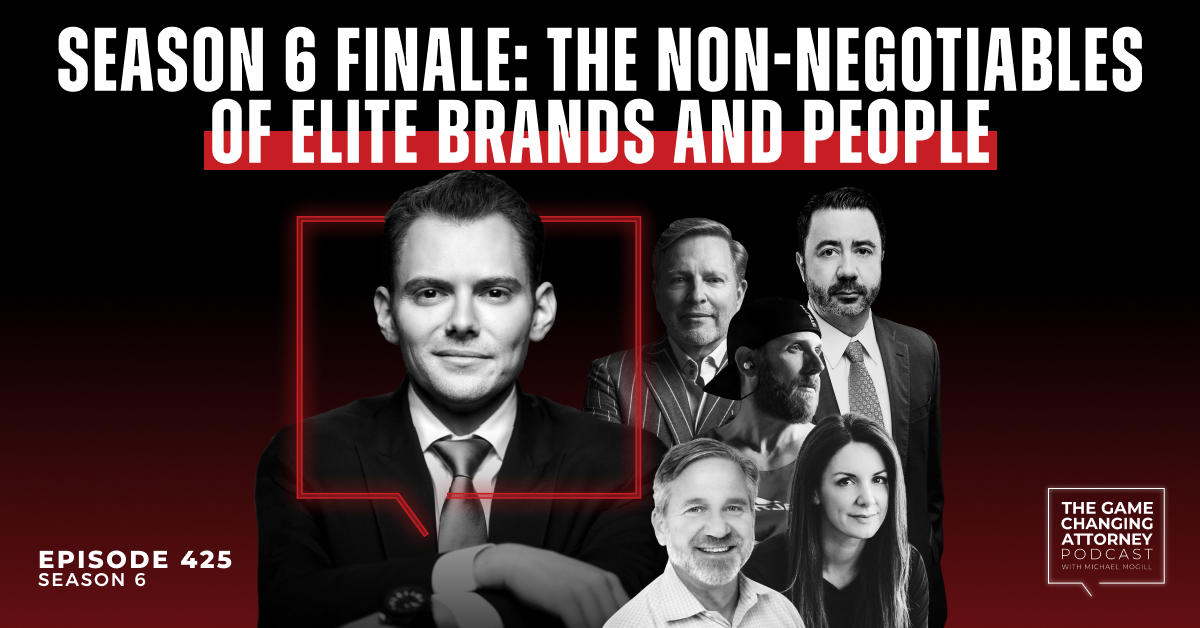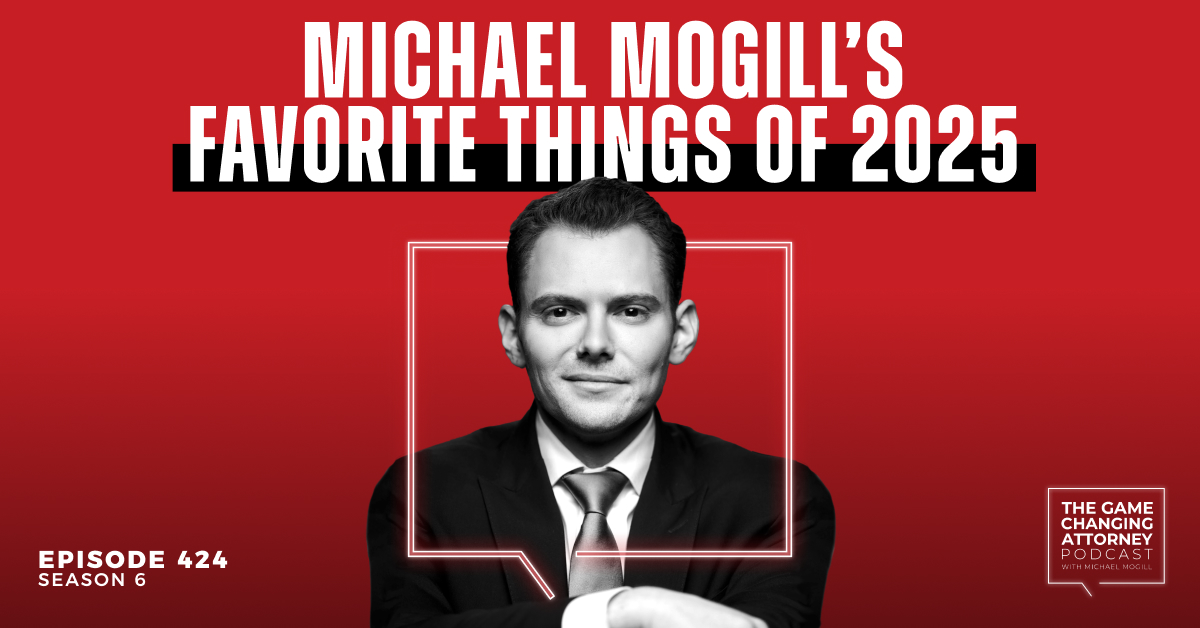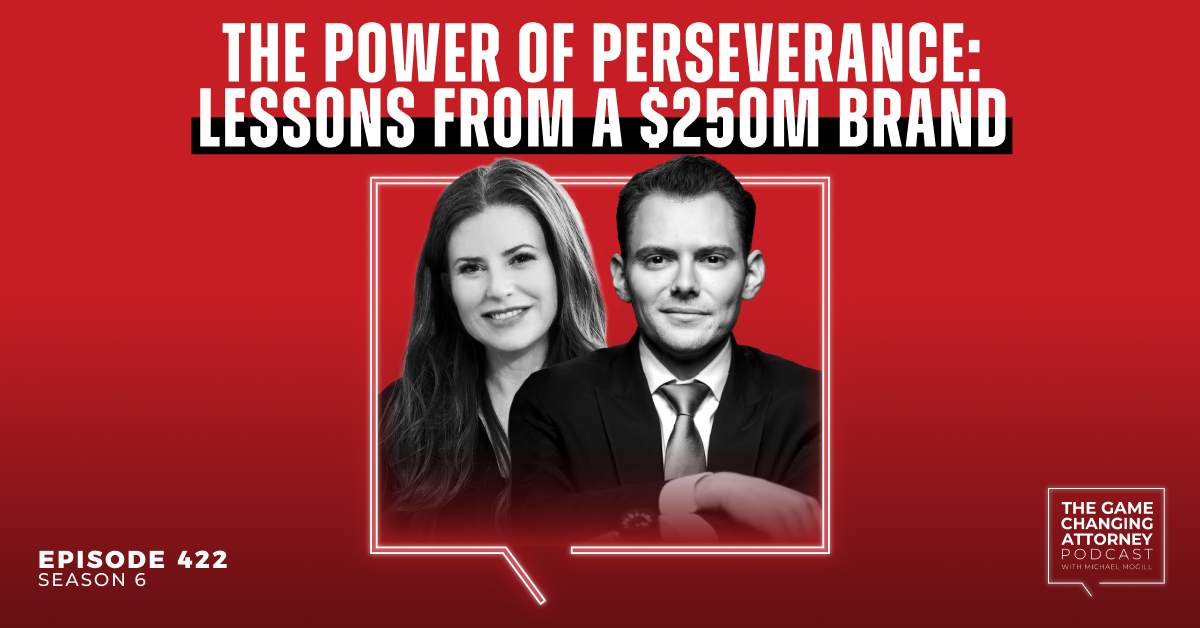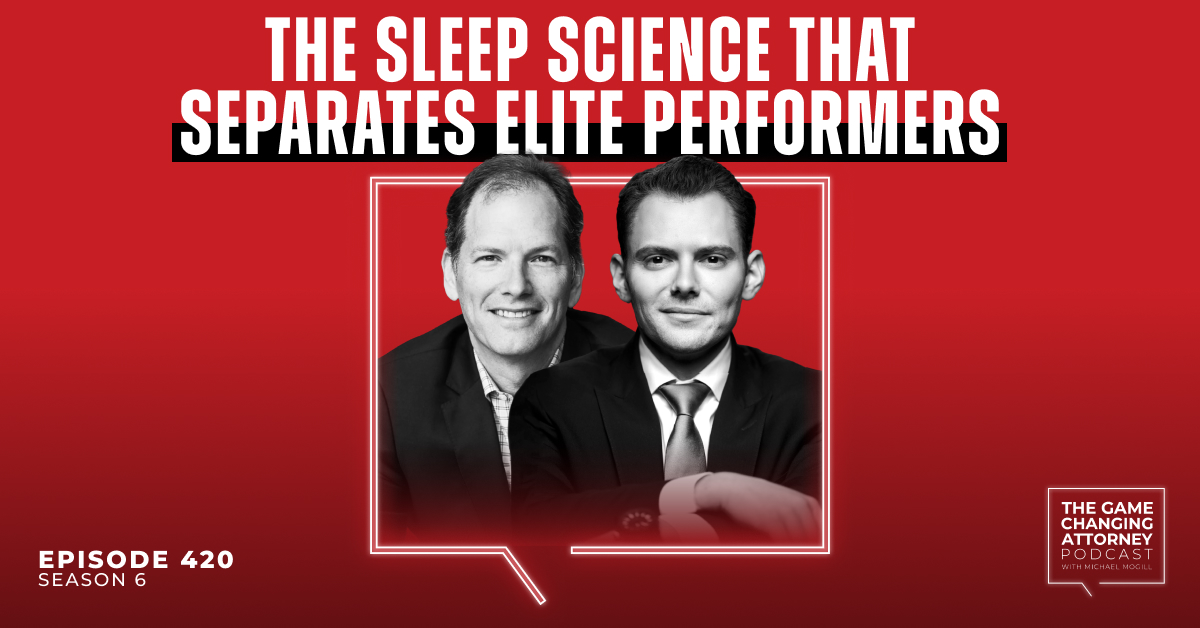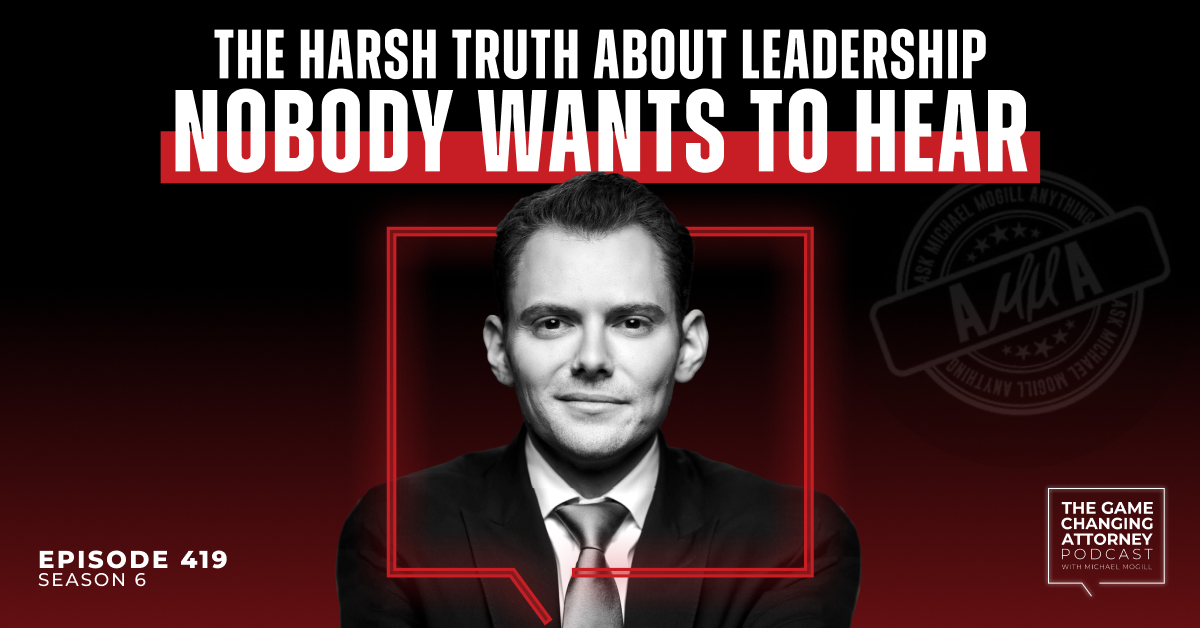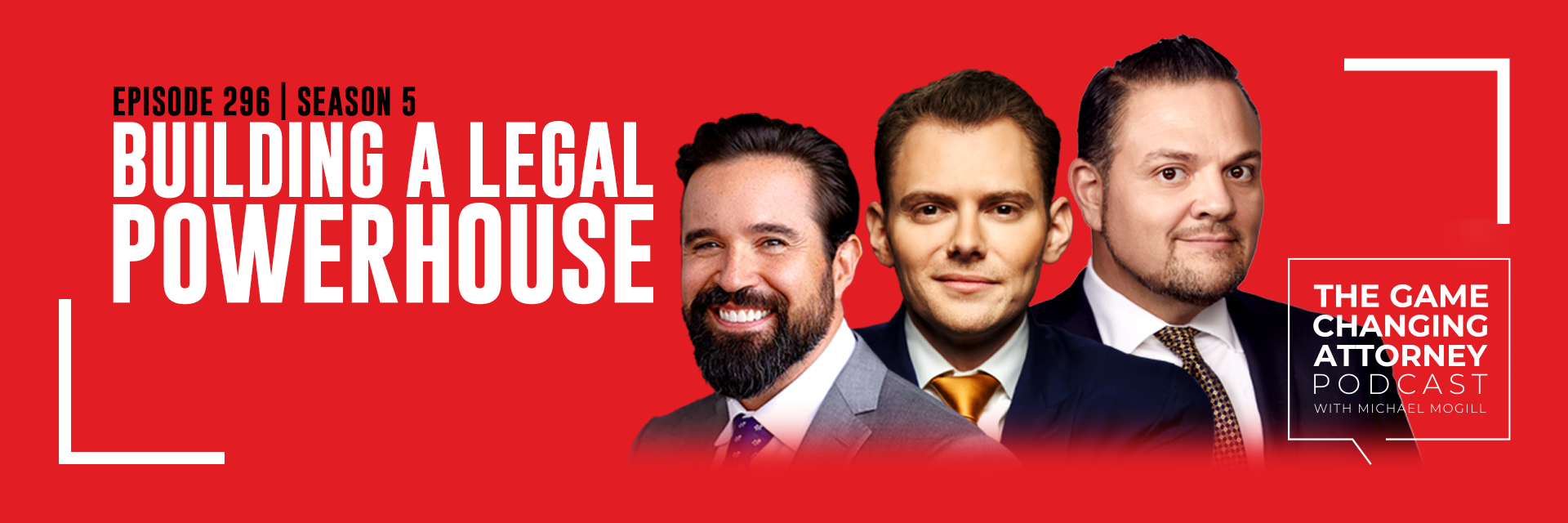
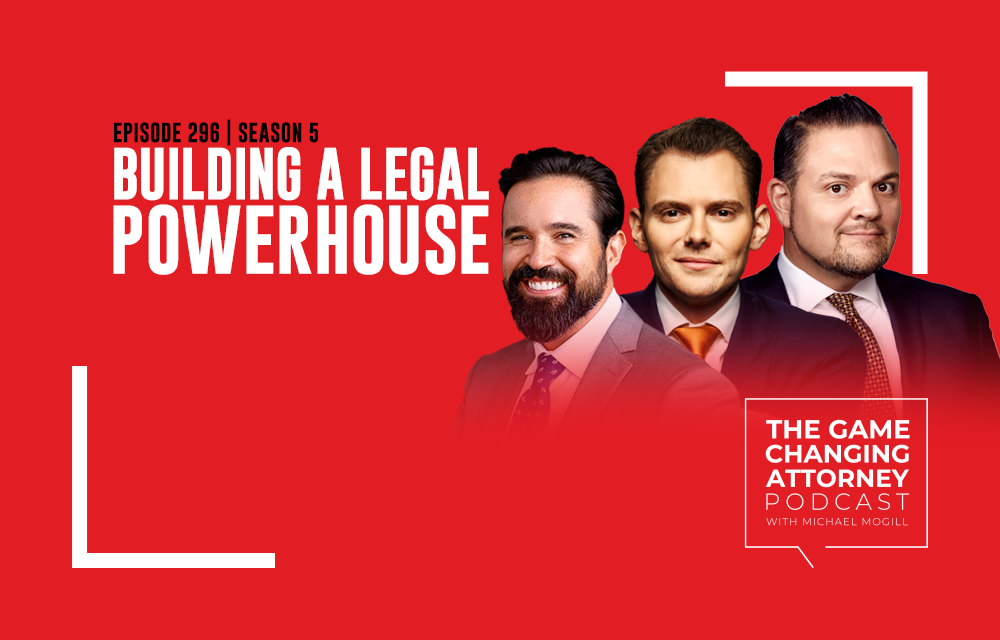
Episode 296 — Creating a Competitive Edge: Lessons in Legal Leadership
Are you struggling to grow your law firm despite putting in endless hours and relentless effort?
Crisp Founder & CEO Michael Mogill has a game plan that’s going to change the way you think about law firm management and growth.
On this episode of The Game Changing Attorney Podcast, we’re re-airing Michael’s conversation with leading legal heavyweights Bob Simon and Mauro Fiore on the Bourbon of Proof Podcast.
After tuning in, you’ll know:
- The importance of prioritizing your health and well-being to lead effectively
- How to build a strong team of solution-focused individuals
- How to stay ahead of industry trends to remain competitive in saturated markets
Listen & Subscribe
Show Notes:
Be a leader worth following. “One of the most valuable things for a lawyer is knowing how to attract and hire the right people. Every law firm I encounter says they want the best trial attorneys. My response is always, ‘Well, you’re not alone. Why would the best trial attorneys want to work at your firm? These attorneys have plenty of options, they can be well compensated anywhere, and many are happy where they are.’ So how do you attract someone like that? The key lies in building a culture and brand that draws them into your ecosystem. Beyond that, it’s about developing your leaders and getting your team on board.”
The right team can solve any challenge. “The root of any problem is people, and the root of any solution is also people. If you can bring the right people into your firm and create the right culture, you can solve any problem. It’s not that P&Ls and metrics don’t matter. They matter a lot. Revenue and profit are crucial. However, I don’t believe you solve issues by simply scrutinizing line items and making cuts. Imagine if you had the absolute best trial attorneys, paralegals, and intake staff on the planet. With a team like that, you wouldn’t have any problems. You’d be set.”
Team cohesion challenges. “It’s astonishing when you consider how to assemble a team. You’re looking at each individual’s skills, capabilities, mindset, and day-to-day attitude. It’s a challenging task — simple in concept, but not easy to execute. Whether you have 10, 50, or 100 people at your firm, bringing together different backgrounds, personalities, and skill sets and getting these individuals to work well together is no small feat. You could attract very talented people, but that doesn’t guarantee they will all work well together.”
Money doesn’t make up for time. “I believe my advantage has been the opportunity to learn from people who are further ahead in life. I observe their experiences and listen to their regrets, often hearing things like, ‘I wish I would have spent more time with my kids,’ or, ‘I wish I would have spent more time with my family.’ Many entrepreneurs start out saying they’re doing it all for their family, working long hours and weekends to provide. But eventually, they reach a point where everyone is taken care of, yet they continue to work in the same way, still justifying it by saying they’re doing it for their family.”
Adapt or die. “Rule 5.4 opens the door for private equity to come in and offer capital. While some may wonder how they can compete with private equity money, others see it as a great opportunity to inject capital into their firm. Private equity doesn’t have to acquire the firm entirely. They can buy in, allowing the firm to reinvest the money in hiring people and growing the practice at a rate more competitive than many funding companies. This provides lawyers with significant opportunities to grow. Moreover, AI is driving more efficiency and effectiveness. I don’t think AI will kill law firms; rather, it’s the lawyers using AI who will outperform those who don’t.”
Keep the end in mind. “Let’s say you’ve built a great practice over many years. What’s the exit strategy? If you decide to sell, your only buyer is another lawyer, and if your firm is of a decent size, there aren’t many options, especially within your market. But now, with private equity, you can truly sell your practice, obtain a legitimate valuation, and secure a strong multiple that sets you up for retirement. That opportunity didn’t exist before. This shift underscores the growing importance of the business side of law, which is becoming increasingly vital.”
Treat your law firm like a business. “Running your practice like a business means prioritizing the client experience. It involves ensuring that your team is highly capable, well-trained, and developed, and that you have the resources to handle significant cases. Consider the difference between a solo attorney working 100 hours a week, spread thin, and an attorney with a well-resourced team that provides excellent services, is highly responsive, and delivers exceptional client experiences. Which one do you think a prospective high-value client is going to choose?”
Small is selfish. “Helping others win becomes the focus once the financial aspect is handled. At that point, the priority shifts to making a significant impact, serving more people in the community, and doing things that give rather than take. Helping someone become a better leader isn’t just about their success; it’s about enabling them to lead a better life where they can spend more time with their kids and family. The best way to inspire others is not just by telling them what to do, but by being the example yourself.”
- Bourbon of Proof
- Mauro Fiori
- Bob Simon
- Taco Mac
- MCAT
- LASIK
- Free Spirits: THE SPIRIT OF BOURBON
- Mercedes-Benz Stadium
- Dirty Bird
- Arnold Schwarzenegger
- John Morgan
- Ickey Shuffle
- Ogilvy
- Verizon
- Red Bull
- Avvo
- Spears Kentucky 74 Spiced Nonalcoholic Cinnamon Whiskey
- Nick Rowley
- Van Winkle 23
- TED Talk
- Alexander Shunnarah
- National Trial Lawyers
- Lowe’s
- David Goggins
- Gary Dordick
- Ritz-Carlton Yacht
- Disney
- Justice HQ
- Fireball
- Dungeons & Dragons
Connect with Michael
- Text directly at 404-531-7691
